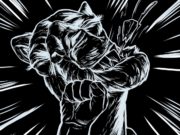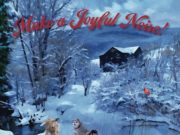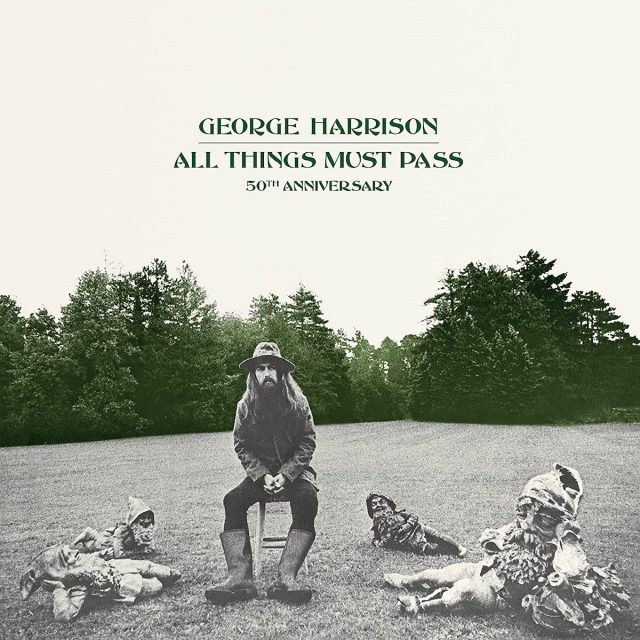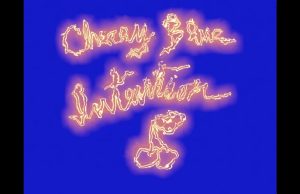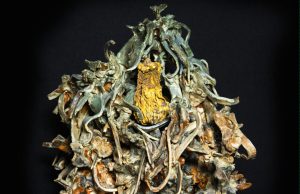THE EDITED PRESS RELEASE: “Recorded and released in the wake of The Beatles’ April 1970 dissolution, George Harrison’s landmark solo album All Things Must Pass is a fully realized statement by a bold and audacious artist. Produced by Harrison and Phil Spector, the 23-track All Things Must Pass stands tall a half century later as an epic, ambitious expression of Harrison’s remarkable gift for sheer songcraft, powerful spirituality and a celebration of both his inimitable individuality and unique camaraderie with his fellow musicians.
All Things Must Pass was an overdue artistic release for George as a songwriter and musician. The first triple studio album, All Things Must Pass overflows with a voluminous range of ideas, musical styles and influences, spanning rock ’n’ roll, country, gospel, blues, pop, folk, R&B, Indian classical music, and devotional songs. Despite the album being wildly successful and Harrison’s affection for it, he would write in the liner notes for the 30th anniversary remaster, released in 2001, “I still like the songs on the album and believe they can continue to outlive the style in which they were recorded,” adding, however, “it was difficult to resist re-mixing every track. All these years later I would like to liberate some of the songs from the big production that seemed appropriate at the time.”
Decades in the making and lovingly crafted by the Harrison family, All Things Must Pass has now been completely remixed from the original tapes for a stunning suite of 50th anniversary releases that fulfil Harrison’s longtime desire. Executive produced by Dhani Harrison, product produced by David Zonshine and mixed by triple Grammy-winning engineer Paul Hicks, the new mix transforms the album by sonically upgrading it — making it sound brighter, fuller and better than ever before.
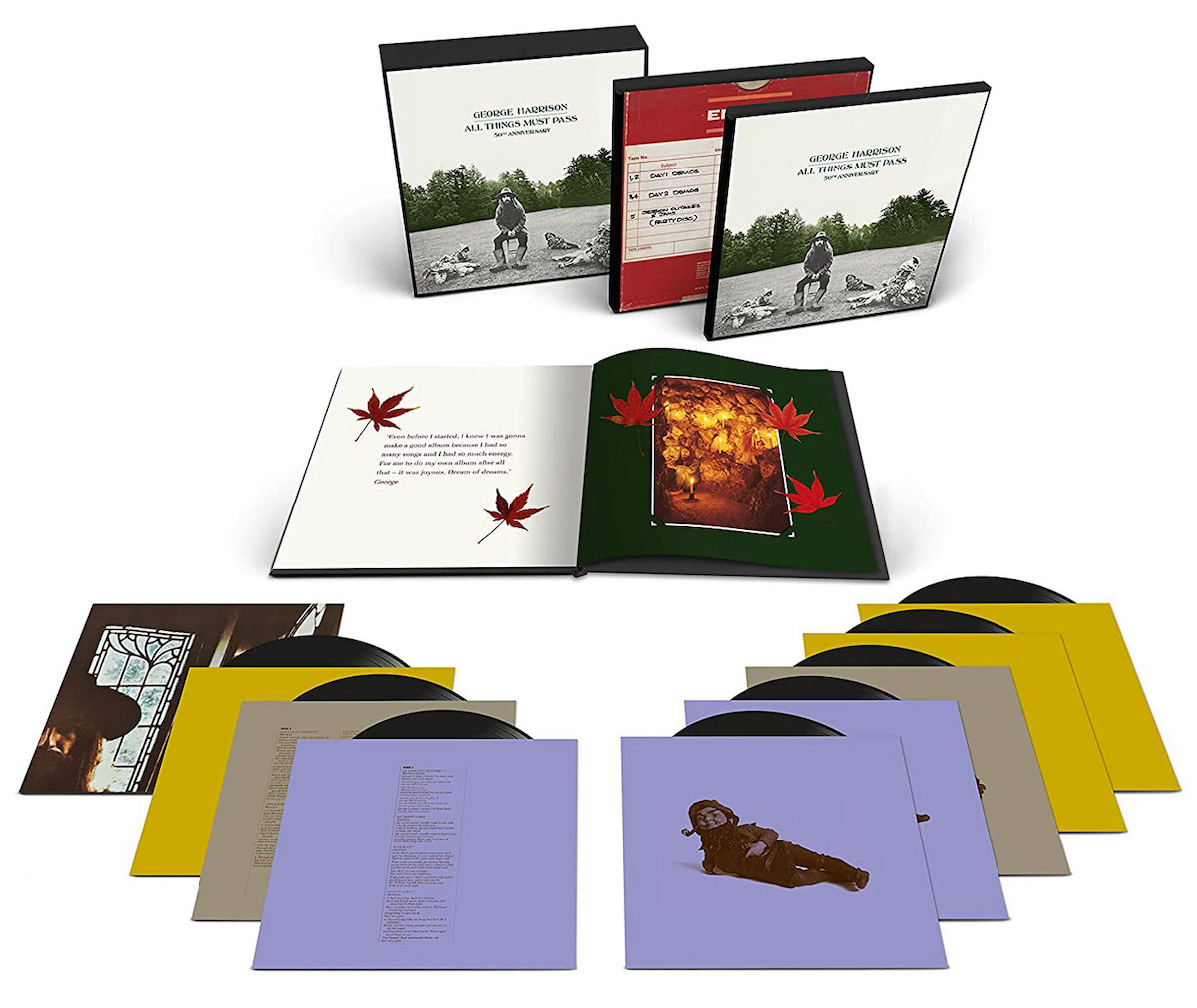
“Since the 50th anniversary stereo mix release of the title track to my father’s legendary All Things Must Pass album in 2020, my dear pal Paul Hicks and I have continued to dig through mountains of tapes to restore and present the rest of this newly remixed and expanded edition of the album you now see and hear before you,” says Dhani Harrison. “Bringing greater sonic clarity to this record was always one of my father’s wishes and it was something we were working on together right up until he passed in 2001. Now, 20 years later, with the help of new technology and the extensive work of Paul Hicks we have realized this wish and present to you this very special 50th Anniversary release of perhaps his greatest work of art. Every wish will be fulfilled.”
The All Things Must Pass sessions began just six weeks after the April 1970 announcement of The Beatles’ break-up. Two days were spent recording 30 demos in at EMI Studios. The first day, May 26, saw Harrison record 15 songs backed by Ringo Starr and his longtime friend, bassist Klaus Voormann, beginning with All Things Must Pass. The next day, George played an additional 15 songs for co-producer Phil Spector. The All Things Must Pass Super Deluxe Edition collects all 30 of these remarkable demo recordings, including 26 tracks never before officially released and several songs that didn’t make the album like Cosmic Empire, Going Down To Golders Green, Dehra Dun, Sour Milk Sea and Mother Divine.
The scope of Harrison’s songwriting remains breathtaking — his deeply personal introspection and striking wit is matched by the album’s boldly extravagant production. With its densely orchestrated textures and eclectic embrace of myriad genres, Harrison and Spector’s groundbreaking sonic approach set a grand blueprint for countless artists to follow.
George had been stockpiling material for nearly half a decade, with a number of songs — including Isn’t It A Pity and the title track — rehearsed with, but not recorded by, The Beatles. Further songs evinced Harrison’s growing frustration over those preceding years, including Wah-Wah, the dramatic Beware of Darkness, and Run Of The Mill, the latter named by both George and Olivia Harrison as one of their all-time favorites. Written by George while producing Billy Preston’s 1969 Apple Records solo debut but saved for his own album a year later, the glorious What Is Life highlights the artist at his most exultant. At the album’s heart were songs like My Sweet Lord, Awaiting On You All and the impassioned Hear Me Lord, each of which epitomized Harrison’s lifelong inner journey. An anthem weaving a chant of the Hare Krishna mantra and “hallelujah,” My Sweet Lord proved a worldwide smash upon its November 1970 single release, making history as the first solo single by a former Beatle to reach #1 in the UK or the US. Inducted into the Grammy Hall of Fame in 2014, the indelible anthem of spiritual and religious unity has remained one of the world’s most beloved songs.
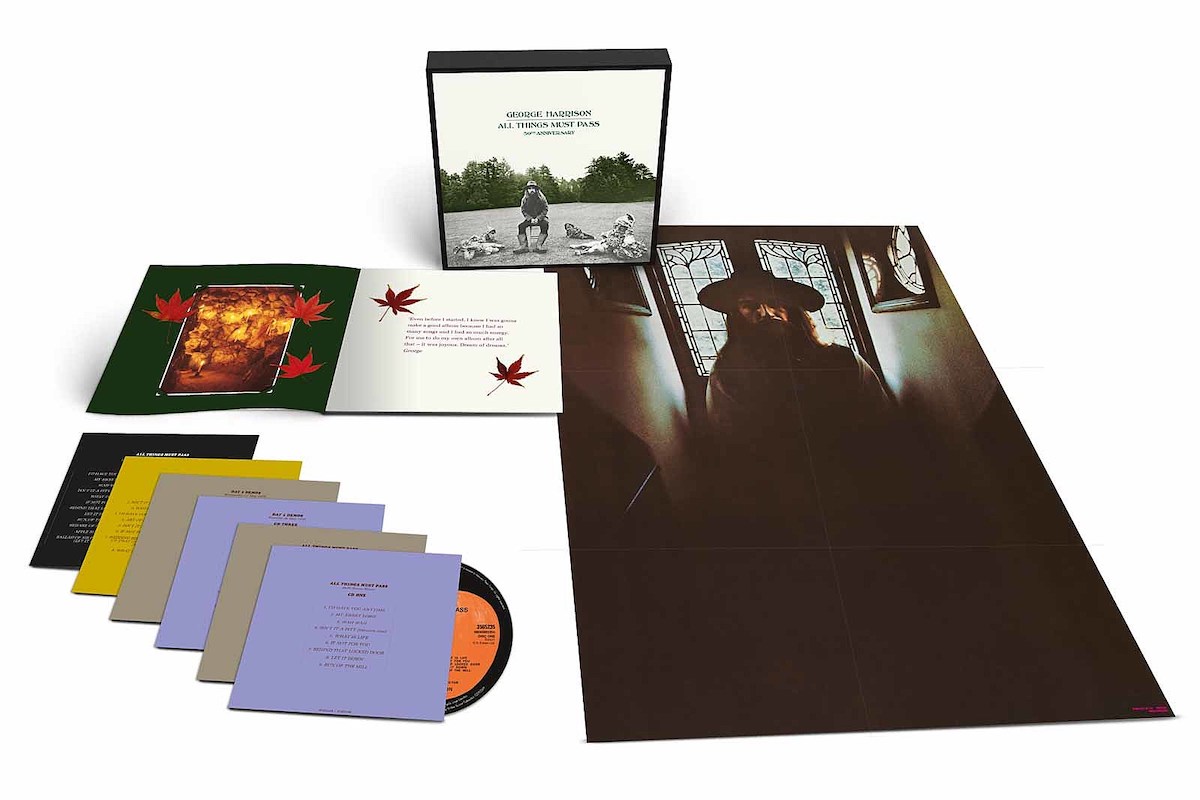
Harrison’s close friendship with Bob Dylan begat two songs: the album-opening I’d Have You Anytime was co-written with Dylan, while the classic If Not For You was at the time an unreleased Dylan composition. The All Things Must Pass Super Deluxe Edition includes previously unreleased demo recordings of both songs as well as Nowhere To Go and I Don’t Want To Do It, another original Dylan song later recorded by George for a 1985 soundtrack but remains unrecorded by Dylan himself.
George brought together a stunning roster of friends and fellow musicians to record All Things Must Pass, including Ringo Starr, Klaus Voormann and Billy Preston, along with Eric Clapton and his new American bandmates, Carl Radle, Bobby Whitlock and Jim Gordon (soon to be known collectively as Derek and the Dominoes). Badfinger’s Pete Ham, Tom Evans, Joey Molland and Mike Gibbons contributed additional acoustics and percussion. Phil Spector’s desire for multiple pianos, layers of acoustic guitars, and more drums saw the addition of Peter Frampton and Jerry Shirley from Humble Pie, Spooky Tooth’s Gary Wright, Plastic Ono Band veteran and future Yes drummer Alan White, Traffic’s Dave Mason, Procol Harum’s Gary Brooker, and the in-demand horn section of Bobby Keys and Jim Price. Pete Drake, legendary Nashville session musician provided pedal steel guitar on several tracks. Arrangements for strings and horns came from longtime collaborator John Barham.
The original release of All Things Must Pass collected 18 songs over two LPs alongside a third LP — dubbed Apple Jam — showcasing four improvised instrumentals including a pair recorded as part of Derek and the Dominoes’ first official recording session in June 1970. In addition, the Apple Jam disc includes It’s Johnny’s Birthday, sung to the tune of Cliff Richard’s 1968 hit Congratulations and recorded as a gift from Harrison to mark John Lennon’s 30th birthday. The All Things Must Pass session tapes created in 1970 include over 25 hours of music on 49 1” eight-track tapes, four 2” 16-track tapes, and 44 ¼” stereo tapes. Richard Radford, archivist for the George Harrison Estate, oversaw the preservation of the tape collection, with the original analog multi-track and stereo tapes transferred to 192 KHz/24bit digital preservation copies.
All Things Must Pass was met by unanimous critical acclaim and spectacular commercial success, spending seven weeks at #1 on Billboard’s Top LPs chart and eight weeks atop the U.K.’s official albums chart (though records until 2006 mistakenly stated that it had peaked at #4). Currently certified 6x platinum, All Things Must Pass later received a 1972 Grammy nomination for Album of the Year, while My Sweet Lord earned a nod for Record of the Year. What Is Life, the album’s second single, also became an international hit, reaching the top 10 in the US and Canada as well as #1 in Australia and Switzerland. All Things Must Pass has only grown in influence and stature in the half-century since its initial release, including induction in the Grammy Hall of Fame.”









